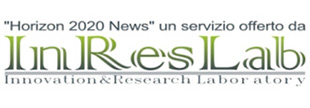Lo scorso 21 febbraio, i templates per lo SME Instrument Fase 1 e Fase 2 sono stati aggiornati per includere nelle proposte sottomesse una valutazione degli impatti attesi sulla società e sull’ambiente.
Il cambiamento riguarda la Parte B dei templates per la fase 1 (scarica qui) e per la fase 2 (scarica qui). Essi da ora includeranno un punto aggiuntivo nella sezione 2.1.a “expected impacts” nel quale affrontare la descrizione del cambiamento climatico e dell’ambiente e degli altri importanti benefici per la società. Le prossime cut-off dates dello Sme Instrument sono: 03/05/2017 e 06/09/2017 per la fase 1; 06/04/2017 e 01/06/2017 per la fase 2. Questi i topics a disposizione:
- SMEInst-01-2016-2017 Open Disruptive Innovation Scheme;
- SMEInst-02-2016-2017 Accelerating the uptake of nanotechnologies advanced materials or advanced manufacturing and processing technologies by SMEs;
- SMEInst-03-2016-2017 Dedicated support to biotechnology SMEs closing the gap from lab to market;
- SMEInst-04-2016-2017 Engaging SMEs in space research and development;
- SMEInst-05-2016-2017 Supporting innovative SMEs in the healthcare biotechnology sector;
- SMEInst-06-2016-2017 Accelerating market introduction of ICT solutions for Health, Well-Being and Ageing Well;
- SMEInst-07-2016-2017 Stimulating the innovation potential of SMEs for sustainable and competitive agriculture, forestry, agri-food and bio-based sectors;
- SMEInst-08-2016-2017 Supporting SMEs efforts for the development – deployment and market replication of innovative solutions for blue growth;
- SMEInst-09-2016-2017 Stimulating the innovation potential of SMEs for a low carbon and efficient energy system;
- SMEInst-10-2016-2017 Small business innovation research for Transport and Smart Cities Mobility;
- SMEInst-11-2016-2017 Boosting the potential of small businesses in the areas of climate action, environment, resource efficiency and raw materials;
- SMEInst-12-2016-2017 New business models for inclusive, innovative and reflective societies;
- SMEInst-13-2016-2017 Engaging SMEs in security research and development.
Fonte: Commissione europea
©RIPRODUZIONE RISERVATA
©RIPRODUZIONE RISERVATA




